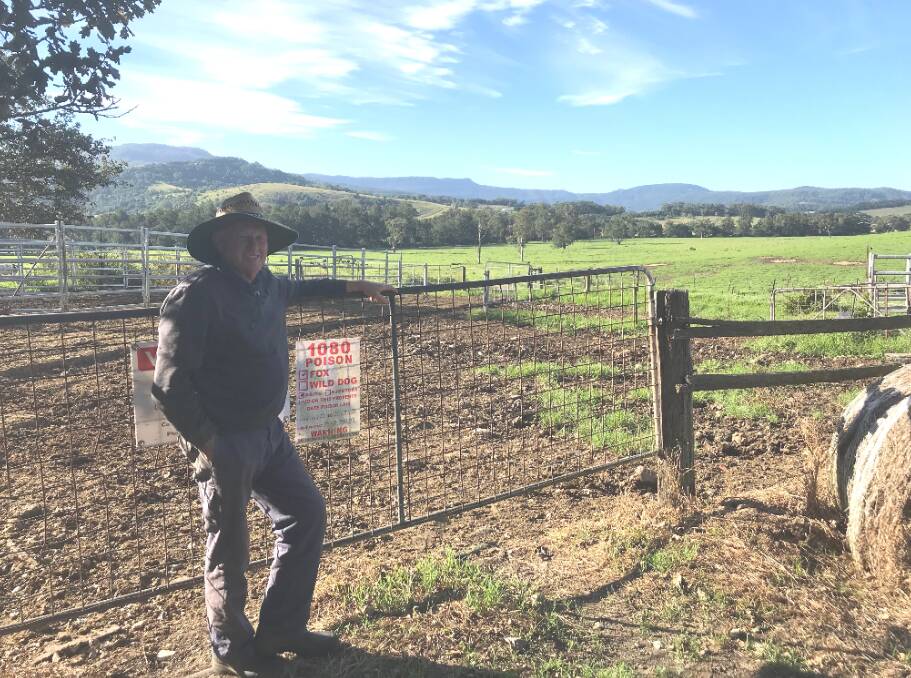
Berry dairy farmer, Peter Cullen has reduced the loss of carves in his dairy herd from a deadly microscopic parasite, on his farm, with help of the Shoalhaven Fox Control Program.
Subscribe now for unlimited access.
or signup to continue reading
Before volunteers from the Shoalhaven Fox Control Program started baiting foxes in 2019 on Peter's farm at Harley Hill in Berry, he was losing up to 10 per cent of his dairy calves to abortion, due to a microscopic parasite known as Neospora caninum.
Now, after 10 months of ongoing fox control on his and some of the adjoining properties, Peter is not losing any calves.
"It was really distressing to see the number of calves that I was losing, but since the fox control efforts that the volunteers have done on my farm it is great to see the lose reduced," Peter said.
Neospora canimum has been identified since the 1970's and studies from Europe have shown that infected cattle are three times more likely to abort than uninfected cows.
Foxes and canines are a major carrier of the Neospora parasite, and pick it up by feeding on the infected tissue of aborted calves or carcasses of cattle that are carriers of the parasite.
In turn the cattle pick up the parasite from the infected foxes faeces that have contaminated the pasture with the parasitic oocysts, which the cows pick up whilst feeding on the infected pasture.
It has been estimated that Neospora infection costs the Australian dairy industry around $85 million a year and the beef industry about $25 million.
It is extremely hard to detect Neospora in a herd, prior to the occurrences of aborted calves, however it is widely accepted by experts that foxes and other candids are the major cause of transmission of the parasite.
It has been estimated that Neospora infection costs the Australian dairy industry around $85 million a year and the beef industry about $25 million.
Peter Jirgens, northern coordinator for the Shoalhaven Fox Control Program said it's satisfying to see numbres being reduced.
"The program is working hard to assist farmers like Peter, our volunteers do a really important job at helping to reduce the impact of foxes on agriculture in Shoalhaven," he said.
The Shoalhaven Fox Program is always looking for new volunteers and property owners to come on board and help. All training and equipment is provided and the program works closely with the South East Local Land Services.
Anyone interested in being involved the Shoalhaven Fox Program can get in touch via the Shoalhaven Landcare website or those north of the Shoalhaven River can contact Peter on 0488 460 011. Residents south of the Shoalhaven River can call Ron Cowlishaw on 0411 261 550.
South East Local Land Services will run a fox control accredited course on April 27, 27, which is mandatory training required before using 1080 baits.

